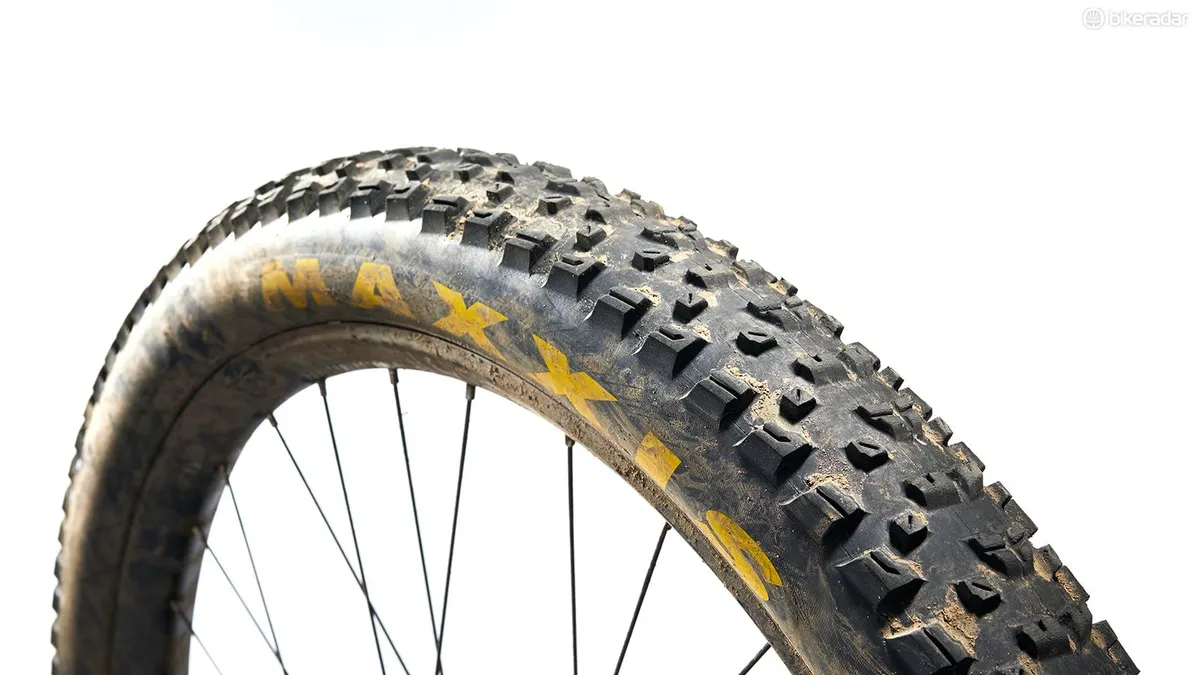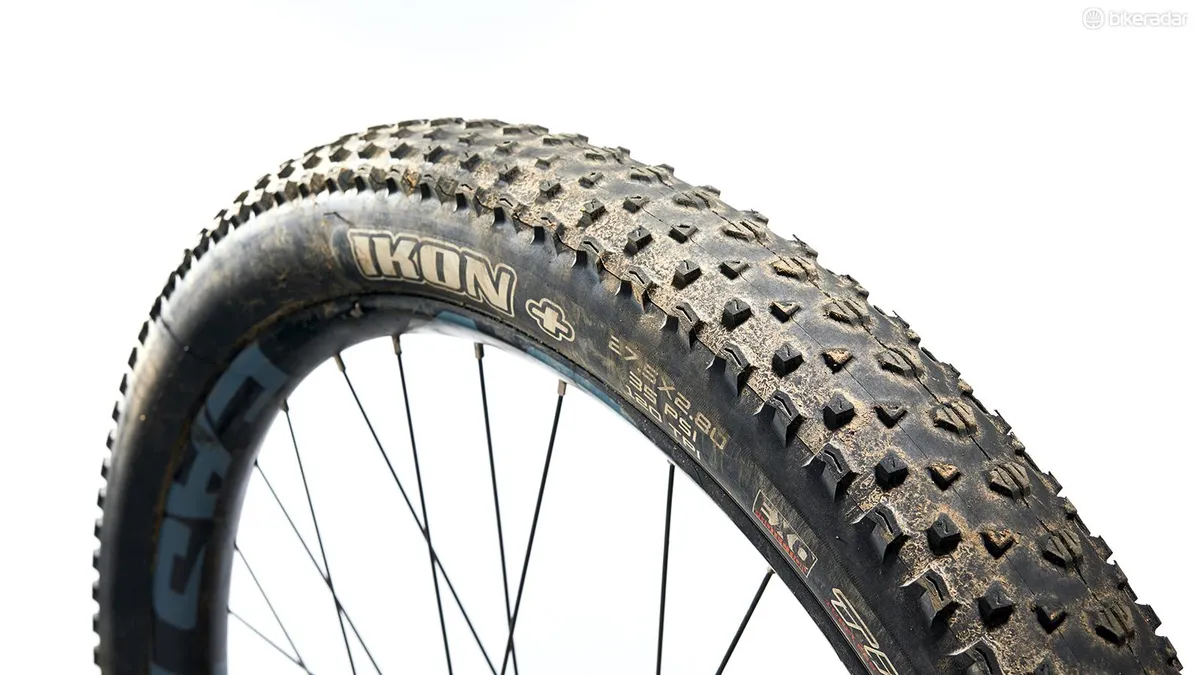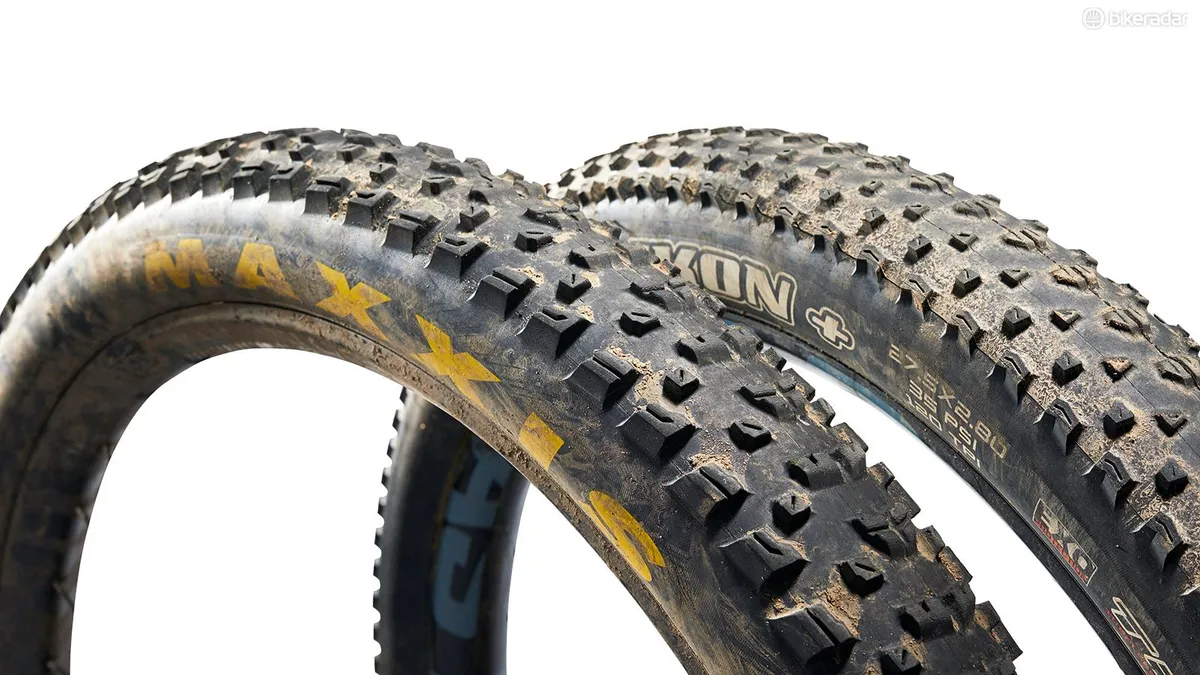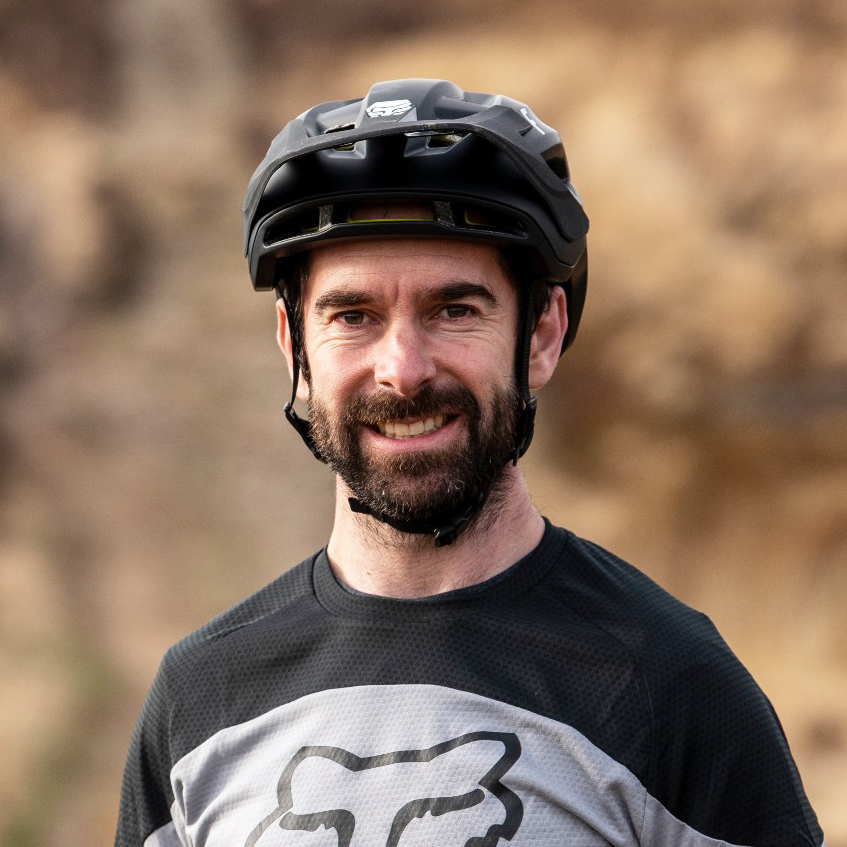Maxxis’ best-selling XC tyre, the Ikon, has been puffed up to 2.8” and paired with a brand new 2.8” tread, the Rekon+, to form a fast-rolling yet grippy trail-taming combo.
- Maxxis mountain bike tyre guide
- Buyer's guide to MTB winter tyres
- Best XC race shoes: buyer's guide and recommendations
They both feature an expanded version of Maxxis’ Exo casing. The carcass uses a high thread-count of 120 TPI (threads per inch), reducing rolling resistance and weight. This does add cost, though; they’re £100 / US$130 / AU$170 each in the single-compound versions (tested) and £110 / US$144 / AU$188 (Rekon) £116 / U$150 / AU$198 (Ikon) in the stickier 3C version.
The Rekon+ uses a new tread pattern, with meaty centre tread for braking, paired with a shoulder area that bites into corners well. The Ikon+ is far more minimal, offering noticeably less braking and cornering traction. It keeps rolling speeds high, though, and not just ‘for a plus- tyre’. Our tests have shown like-for-like plus-tyres are only slightly draggier on tarmac, and carry speed far better over rougher ground than their narrower counterparts.

The Ikon+/Rekon+ duo carries speed effortlessly — often leaving us coasting, while our non-plus-tyre pals pedalled to keep up. More to the point, they’re faster rolling than the Nobby Nics — outperforming them in a roll-down test.
On the other hand, they also offer less grip in some conditions, particularly mud or sand, where even the Rekon’s shoulder tread is slightly outmatched by the Nobby Nics for cornering bite, and the Ikon+ is far more slippery in greasy mud. Happily, though, they break loose in a far more predictable manner. The rear slides first in virtually all surfaces and both tyres are more rounded, resulting in a less sudden slide when you push the limits of cornering grip.
Thanks to siped knobs, which put extra rubber in contact with the ground, and that flexible 120 TPI casing, our single-compound pair were slightly less dicey than the Nobby Nics on hard, wet surfaces.

While the Exo casing is remarkably light at 805g per tyre, we suffered several tubeless punctures while testing on rocky terrain and downhill tracks. We can’t wait for the 2.8in versions of the High Roller II and Minion tyres, and we hope they come in a heavier, beefier format. In the meantime, these are superb for lighter duties.
The low weight and low drag combined with really predictable traction and superb ride quality makes them well suited to everything from trail-centre blasts, rooty lines and even cross-country laps. In fact, for anything which doesn’t involve sharp rocks or thick mud, they’re top performers.

